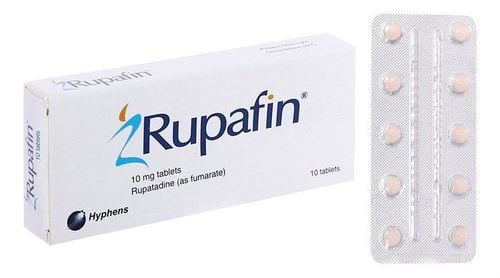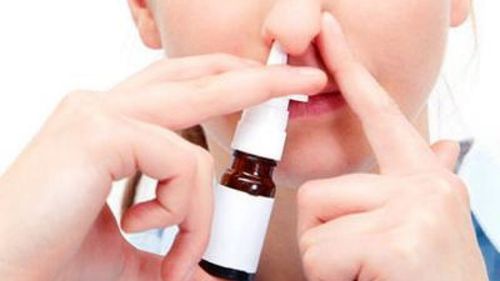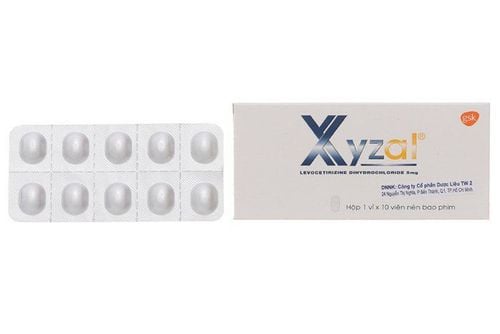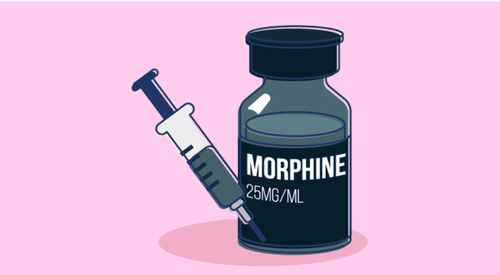This is an automatically translated article.
Drug Xyzal is one of the antihistamines and antiallergic drugs. Use of Xyzal medicine to treat the symptoms of seasonal and year-round allergic rhinitis or chronic urticaria.
1. Uses of Xyzal
Xyzal drug belongs to the group of antihistamines and anti-allergic drugs, with the main active ingredient being Levocetirizine 5mg. This active substance has a strong and selective antagonistic effect on peripheral H1 receptors.
Xyzal is formulated in the form of film-coated tablets and is indicated for the symptomatic treatment of seasonal and year-round allergic rhinitis, chronic idiopathic urticaria.
2. Dosage and how to use Xyzal
Xyzal is taken orally, take 1 tablet whole with water or not, can be taken with or without meals. The dose of Xyzal is only 1 time a day, specifically for each group of subjects as follows:
Children from 6 years old and adults: 5mg/day (equivalent to 1 tablet/day). Patients with renal impairment, the elderly: Dosage depends on the degree of renal failure and on the creatinine clearance (ml/min), 1 tablet/day for mild and normal clearance (from 50 - 70 ml/min/) minutes and above 80ml/min), 1 tablet/2 days for moderate clearance (between 30-50ml/min), 1 tablet/3 days for severe clearance (less than 30ml/min). In the case of patients with end-stage renal disease, hemodialysis with a clearance of less than 10ml/min, Xyzal should not be used. Children 6-11 years old with kidney failure should not take Xyzal. Children 11 years of age and older with renal impairment may be given Xyzal, but the dose should also be based on weight and renal clearance. Hepatic impairment: If the patient has only liver failure, no dose adjustment is required, if both liver and kidney failure are present, the dose of Xyzal should be adjusted depending on the degree of renal impairment. Duration of treatment with Xyzal is as follows:
Allergic rhinitis intermittent with symptoms less than 4 days / week or lasts less than 4 weeks: Depending on the medical history, when symptoms are gone, use can be discontinued. medication, and when relapse occurs, use the drug again. Continuous allergic rhinitis with symptoms lasting more than 4 days/week and more than 4 weeks): During the time of allergen exposure, the patient needs to take Xyzal continuously. The duration of treatment for chronic allergic rhinitis or chronic urticaria can be up to 6-12 months. Depending on the condition and the progression of the disease, the dose may be different. To ensure the safety and effectiveness of treatment, it is best to consult a doctor.
Xyzal, if used in excess, can make adults somnolent, while children are restless, restless, somnolent, and anxious. At that time, the patient should be treated with symptomatic or supportive treatment.
3. Side effects of Xyzal
Xyzal can cause some side effects with specific frequency as follows:
Common: Symptoms of nervous system disorders such as drowsiness, somnolence, headache; digestive disorders with dry mouth manifestations; other symptoms such as cough, fever, fatigue, sleep disturbance. Uncommon: Vomiting, abdominal pain, asthenia. Frequency not known: Xyzal causes side effects such as drug hypersensitivity reactions, appetite, weight gain, taste disturbances, hallucinations, anxiety, insomnia, aggression, depression, suicidal ideation dizziness, convulsions, tremors, syncope, blurred vision, visual disturbances, tachycardia, palpitations, dyspnea, nausea and vomiting, liver function tests showing abnormalities, inflammation liver, pruritus, rash, erythema, angioedema, urticaria, edema, myalgia, urinary retention, dysuria. When there are side effects after taking Xyzal above, it is necessary to stop using the drug and go to a medical facility or notify the doctor for timely treatment.
4. Some notes when taking Xyzal
Xyzal drug should not be used in people with hypersensitivity to the components of the drug, people with severe renal impairment (creatinine clearance <10 ml/min) and children aged 6-11 years with renal failure. Drinking alcohol while taking Xyzal may increase your risk of urinary retention. People who are prone to urinary retention due to prostate hyperplasia, spinal cord injury should be cautious in taking Xyzal. People with epilepsy or convulsions need to be careful in taking the drug because it can increase the risk of seizures. Discontinue the drug 3 days before conducting an allergic skin reaction test, because Xyzal may inhibit the reactions. When you stop taking Xyzal, you may experience itching even if you didn't have this symptom before taking Xyzal. Do not give Xyzal to infants and children under 2 years of age, because research is limited. Children under 6 years of age cannot take the drug in the form of film-coated tablets, which cannot be divided into doses. To ensure proper dosing, other dosage forms should be used. People with galactose intolerance or glucose malabsorption, Lapp lactase deficiency should not take Xyzal because it contains lactose. Patients with symptoms of fatigue, drowsiness, or weakness when taking Xyzal should not drive or operate machinery. Monitor drug response before undertaking activities that require alertness and concentration. Pregnant women should consider the use of Xyzal in case of necessity. Although the effect of the drug on the fetus and the neonate has not been observed, its use should be considered when the benefits outweigh the risks. However, absolutely do not use Xyzal in nursing women because the drug is excreted in breast milk and affects the newborn baby. Xyzal may interact with medications including Theophylline, Ritonavir, CNS depressants. Xyzal is used in the treatment of symptoms of seasonal allergic rhinitis or perennial allergic rhinitis, chronic urticaria. Depending on whether symptoms are persistent and continuous, the duration of treatment varies and can be up to 6 months or 1 year.
Please dial HOTLINE for more information or register for an appointment HERE. Download MyVinmec app to make appointments faster and to manage your bookings easily.













